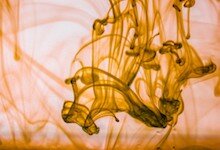
Stephen Romer was born in Hertfordshire in 1957; he has lived in France since 1981. He was educated at Trinity Hall, Cambridge. He is now Maître de Conférence at Tours University, France, in the English department. Romer has been Visiting Professor of French at Colgate University, New York, three times. He regularly reviews French poetry and literature for the Guardian and the Times Literary Supplement.
Stephen Romer has published four collections of poetry: Idols, Plato’s Ladder, Tribute and Yellow Studio. All are published by Carcanet under the Oxford Poets imprint. Romer has also edited (for Faber) the anthology Twentieth Century French Poems. Aside from his creative work, Romer is one of the foremost British critics and translators of French poetry: his translations include Philippe Jaccottet, Jean Tardieu and Jacques Dupin. He has also translated sections from The Notebooks of Paul Valéry (2002). He is the 2009 judge, with fellow poet Elaine Feinstein, of the Poetry Society’s Corneliu M. Popescu Prize for European Poetry in Translation.
There was an eight-year wait for Romer’s latest collection, Yellow Studio, which was hailed as a critical success and shortlisted for the TS Eliot Prize in 2008, and is generally regarded as the highlight of his career so far.
Romer’s characters, whether in England, France, or the rest of Europe, are all captives of romance and idealism; poet Adam Thorpe calls him one of the “finest poets of thwarted or impossible love”. The title, Yellow Studio, comes from Vuillard’s studio, where the poet stands looking at “the paintings in the painting”, remarking with a charcteristic chuckle that this “mise en abyme / will be the end of me”. Romer’s poetry often takes on this hearty, throwaway self-mocking of his Francophilia. Though it may be “the end of me”, the French and the English marriage in this line – and in the rhyme – is at the heart of his poetry, and is at the heart of its continuation, rather than any dreamed-of end. This theme is continued in ‘Alas Without Constraint’, as the poet surrenders his refined airs and admits he’d rather have an American soft-drink than stroll through a French gallery “Having a Coke with you / in the Coffee Parisien / has got to be more fun / than trailing to an exhibition / even Picasso’s érotique.”
The poem ‘Yellow Studio’ is at the centre of the whole collection, it is the point of stillness, and contemplation: “I stare with nostalgia, with homesickness / into Vuillard’s yellow studio / and I know the place / absolutely”. The artist's studio — and the poet's verse, it is suggested — is a ‘humane / heaven of drapes and turpentine’. Even in ‘Dismantling the Library’, where book-shelves are dismantled and pages peeled away, literature is at the heart of “the honeycomb” or “the hornet’s nest” – though by rights, then, it could be of a sweet or waspish disposition.
Romer’s line length is short; the language simple, sure-footed; the emotional resonance, direct. It has been commented that his verse gives English a lissom, lyrical, French quality. Although Yellow Studio is a patchwork of poems on different subjects (academia, cats in heat, the cornflower), at its heart there is a person missing; whether that be a lover, or a father. The book is split into five sections. The last section’s poems are concerned with the death of his father, leading poet Hugo Williams to write that Romer's verse has “torn away a veil, releasing a new energy and vision”. The poems return again and again to loss and eventual acceptance: “A friend, kindly-curious, / asks do I think of you at all / do I miss you // now the winter has left off / and taken you with it / leaving this clearance”. (‘Pottering About’)
There is a similar sense of lack underpinning his other poems, that “dreary ache / of the unrequited” (‘Senex’) but the collection, overall, feels positive. It boils down, inextricably, to a point of knowledge: of a girl, reading, reading words of love: “the sweet girl / you kissed . . . / read your secret / loving words / tonight. / That’s all I know”.
And “all I know” seems to be more than enough.
Bibliography
Idols, Oxford/Carcanet Press, 1986
Plato’s Ladder, Oxford/Carcanet Press, 1992
Tribute, Oxford/Carcanet Press, 1998
Twentieth-Century French Poems, ed Stephen Romer, Faber, 2002
Yellow Studio, Oxford/Carcanet Press, 2008 – shortlisted for the 2008 TS Eliot Prize
Links
Stephen Romer is the judge for the Popescu Award
Adam Thorpe’s review of The Yellow Studio in the Guardian
Stephen Romer featured at Contemporary Writers
Stephen Romer is published by Carcanet Press







